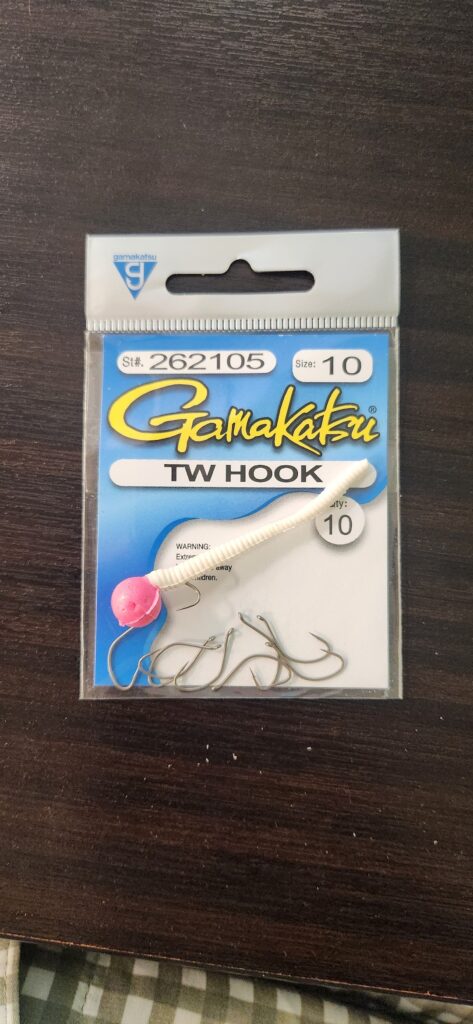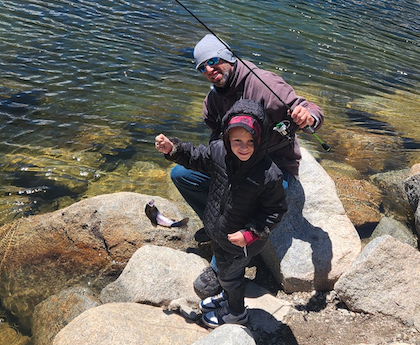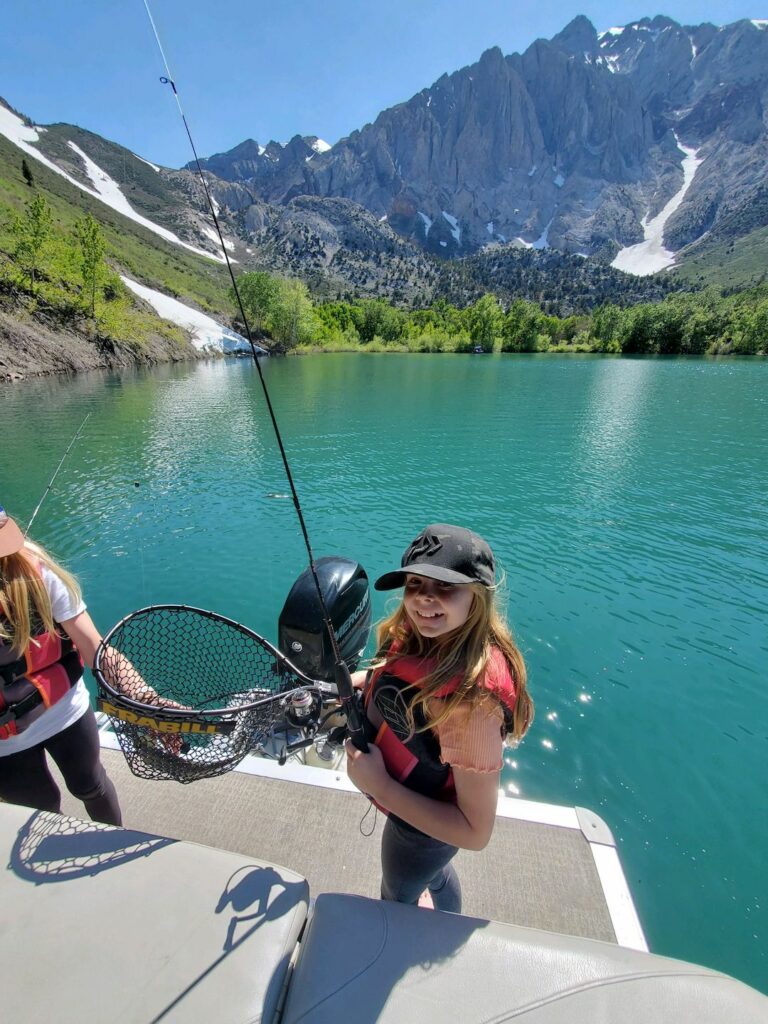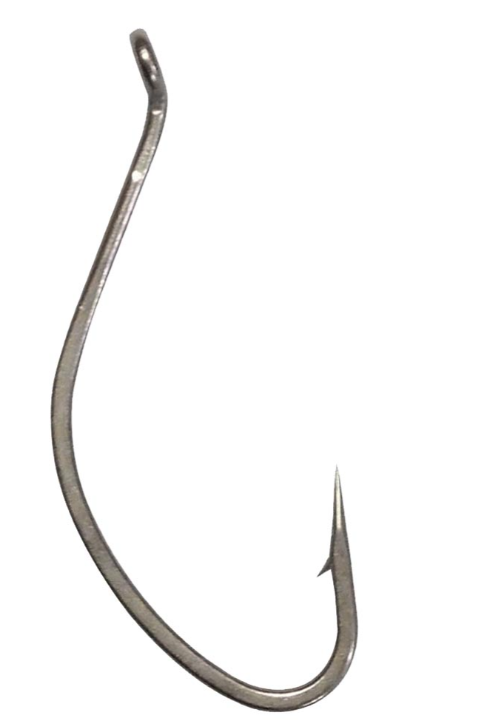Prior to a Sierra trip late last month, I was in a tackle shop filling some gaps in the arsenal when Gamakatsu TW hooks caught my eye. It was the shape that grabbed me. Sort of like the classic Kahle hook only more subtle as far as its curves only with noticeably fine wire that combined to give it a downright surgical appearance. The gears in my admittedly trout-obsessed mind started spinning as I thought about how many roles these hooks (available in sizes from 6 to 16) could fill.
My three kids (11, 9 and 5) came along for the first half of this particular trip, and I made the call to go all-in on getting them trout-bit while they were there, saving my first cast for when they were on their way home. Looking for my best odds at getting kids bent meant deploying a variety of products from the Berkley arsenal, most of which I believed I could rig with Gamakatsu TW hooks.
We found ourselves at the outlet of Rock Creek Lake in our first shot at Sierra rainbows. A couple early PowerBait (the only stuff I rigged on treble hooks) biters let me know we were in the right spot, so I started experimenting with other offerings on the TW (which I correctly guessed stands for “trout worm”) hooks.

I started with Berkley Mice Tails which I’ve always rigged on mosquito-style hooks if not larger “single egg” hooks with reasonable success. If there was a rub in those tactics, it seemed like I’d miss a few fish for every one I connected to. So I was already on the hunt for a longer shanked hook that would allow positioning the point and barb further below the “egg” part of the Mice Tail where it has a better shot and connecting to a trout’s jaw without being “blocked” by the spherical portion of the bait just above it.
I stuck the point of the TW hook right through the top of the Mice Tail and pushed the point straight down into the worm portion of the bait, and by the time the eye of the hook was flush with the top (if not buried in) of the bait, the point of that hook was emerging from the worm right where I wanted it to. The best part about all this was, the rest of the hook was completely within the head and body of the bait, and it was still light enough for the bait to float.
The hookup rate was noticeably better than with the previous hooks, and that point was magnified by the fact that three relatively new-to-fishing kids were doing the hook setting.

When things slowed down on the Mice Tails, I moved on to lower profile Berkley Trout Worms and rigged them similarly, with the hook point straight down through the top and poking it through where only the point was exposed. In weedy areas, I’d spin it around and basically Texas-rig it to avoid getting hung up. It worked like a charm – as did wacky rigging them just for the fun of it – and when the bite slowed on that bite, I repeated the process with the smallest Gulp! Pinched Crawlers and kept the party going. The kids also whacked them the next day doing the same stuff out of a pontoon on Convict Lake.

The bite was slower at Rock Creek Lake days later when I returned for the grownups’ turn to shine. We got a few on Rapalas, minijigs and Thomas Buoyants, but the bite was a grind (I blamed it in part on the on the much heavier Saturday angler pressure) by late morning.
So, I deployed the Berkley barrage and got the biggest fish on Mice Tails, the most fish on Trout Worms and the fish that wouldn’t touch anything else on the Pinched Crawlers. When I was the one administering free lip piercings to RCL rainbows (and a couple browns), I was also pleased to notice the Gamakatsu TW hooks also had a bit of a circle-hook effect to them. That meant a lot more hookups in the corner of the mouth, minimal hook retying and clean releases of trout that required very little handling.
Across all types of fishing, trout gear seems to change the least. New stuff pops up only to fade away and anglers reach back for the proven product that’s been there all along. At first glance, the Gamakatsu TW hook doesn’t look very innovative, but like all “Gama” products, the advantages are below the surface if not at a molecular level. That was the one thing I already knew about Gamakatsu hooks, and it was not part of the assumptions I made when I first picked up a pack of TW hooks, but I was stoked to prove – on the water – that those assumptions were correct.
Check out Gamakatsu TW hook and Gama’s full lineup of products at Gamakatsu.com.





